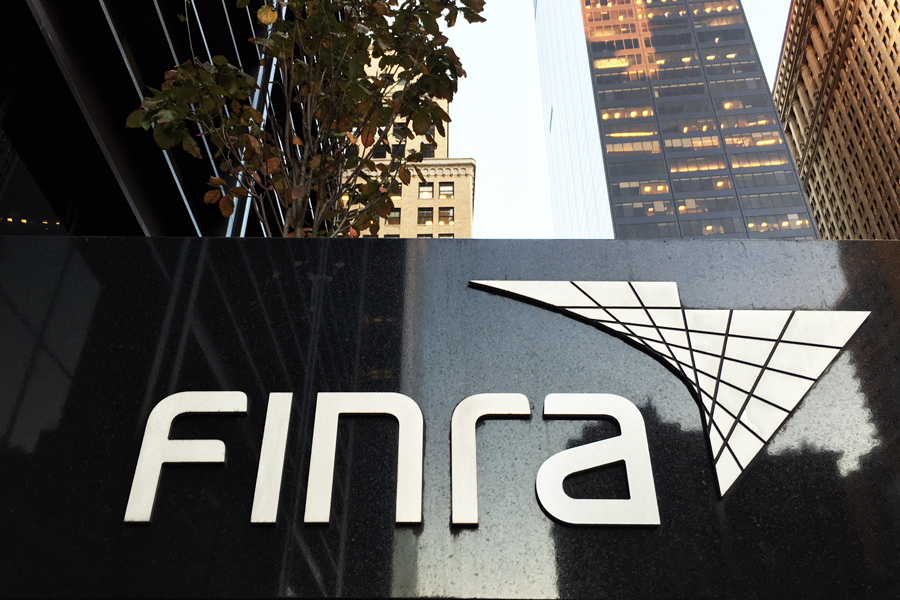Since the inception of the Finra's Central Registration Depository system in 1981, securities professionals have always had the ability to have customer complaints removed from their records under certain circumstances. While the same basic framework for seeking expungement has been in place since 2003, the area has undergone major changes in recent years.
In May 2009, a watershed moment took place when the Financial Industry Regulatory Authority Inc. expanded its rules to require CRD reporting of customer complaints even if the financial adviser is not named as a party to the arbitration. That change resulted in a drastic increase in the number of complaints being reported, and in turn, a drastic increase in the number of expungements being sought.
With requests on the rise, the issue of how and when expungements should be allowed became a hot-button topic. In 2013, the Public Investors Arbitration Bar Association, a group of attorneys who represent investors,
released a study finding a 97% success rate for expungement requests. PIABA called this rate of success "alarmingly" high, and argued that the expungement process is "clearly broken."
Within hours of PIABA's study being released, Finra commented that it "shares PIABA's serious concerns." In the following weeks, Finra began issuing informal guidance directing arbitrators to take certain additional measures before deciding expungement requests. Finra also began training arbitrators that expungement is an "extraordinary remedy."
Over the next several years, Finra regularly added to its
expungement guidance, imposing more and more conditions on when and how expungement could be granted. In the meantime, PIABA released
another study on expungement in late 2015. This study claimed that Finra's efforts to date were not enough, with the success rate remaining around 90%, and continued PIABA's call for an overhaul to the expungement process.
Major changes on the way
Finra currently has two rule proposals in the works. While the first is largely a formality, the
second looks to completely upend the existing landscape for expungement.
First, Finra's board of governors voted in December to begin the process of turning the expungement guidance that has been issued over the past few years into formal rules. While important, this codification will likely have little practical effect, as the guidance is already treated as mandatory in most situations.
The second set of proposed changes is major. These changes were proposed in Finra's Notice to Members 17-42 in December 2017. Most significantly, the NTM 17-42 changes would (1) institute a time limit requiring expungement requests to be brought within one year and (2) raise the standard for granting expungement. The chart below highlights the major changes proposed in NTM 17-42.
| Existing process | Proposed in NTM 17-42 |
| Time for filing | No time limit specific to expungement requests | Must file within one year of underlying arbitration being closed. If complaint did not result in an arbitration, must file within one year of complaint being reported |
| Required findings | Panel must find one of the three grounds listed in Rule 2080. | Panel must find one of the three Rule 2080 grounds and that the "customer dispute information has no investor protection or regulatory value" |
| Number of arbitrators | Can be decided by a sole arbitrator or a panel of three | Must be decided by a panel of three |
| Requirements for decision | Majority rule | Must be unanimous |
| Arbitrator pool | Full roster of arbitrators | Limited roster of expungement-qualified arbitrators |
| Hearing attendance | Hearing can be telephonic | In-person hearing required (video conference possible if permitted by the arbitrators) |
| Expungement-only cases | Can file stand-alone arbitration seeking expungement of any type of customer complaint | If financial adviser is named as a party in arbitration, any expungement request must come during that same case (cannot file stand-alone case) |
| Filing fee for stand-alone expungement claim | Minimum of $50 | Minimum of $1,425 |
While many have voiced opposition to the proposal, it has been met with generally positive feedback from the Securities and Exchange Commission (which has final approval over any rules proposed by Finra) as well as PIABA and other investor advocacy groups.
Finra can now submit a formal rule proposal to the SEC to enact these changes at any time. While some revisions to the original proposal are likely, Finra is keeping its exact plans close to the vest for now. The only recent comments regarding the NTM 17-42 proposal came in a Jan. 15 Finra report, which simply noted that the changes are "in progress" and that Finra is currently "considering next steps."
Joel M. Everest is a principal at the law firm of Bressler Amery & Ross. He can be reached at [email protected].







